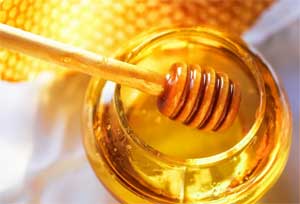- Home
- Editorial
- News
- Practice Guidelines
- Anesthesiology Guidelines
- Cancer Guidelines
- Cardiac Sciences Guidelines
- Critical Care Guidelines
- Dentistry Guidelines
- Dermatology Guidelines
- Diabetes and Endo Guidelines
- Diagnostics Guidelines
- ENT Guidelines
- Featured Practice Guidelines
- Gastroenterology Guidelines
- Geriatrics Guidelines
- Medicine Guidelines
- Nephrology Guidelines
- Neurosciences Guidelines
- Obs and Gynae Guidelines
- Ophthalmology Guidelines
- Orthopaedics Guidelines
- Paediatrics Guidelines
- Psychiatry Guidelines
- Pulmonology Guidelines
- Radiology Guidelines
- Surgery Guidelines
- Urology Guidelines
How effective is Honey for acute cough in children ?

A cough causes concern for parents and is a major cause of outpatient visits and can impact the quality of life and cause anxiety in children and their parents.Since time immemorial Honey has been used to alleviate cough symptoms. The researchers conducted a Meta-analysis to evaluate the effectiveness of honey for an acute cough in children in ambulatory settings.The researchers found that Honey probably relieves cough symptoms to a greater extent than no treatment.
The researchers searchedCentral, Medline, Embase, Cinahl, Ebsco, And Lilacs for Randomised controlled trials comparing honey alone, or in combination with antibiotics, versus no treatment, placebo, honey-based cough syrup, or other over-the-counter cough medications for children aged 12 months to 18 years for an acute cough in ambulatory settings.The Data collection and analysis was done using standard methodological procedures expected by Cochrane.They included six randomized controlled trials involving 899 children; we added three studies (331 children) in this update.
Studies compared honey with dextromethorphan, diphenhydramine, salbutamol, bromelin (an enzyme from the Bromeliaceae (pineapple) family), no treatment, and placebo. Five studies used 7-point Likert scales to measure symptomatic relief of cough; one used an unclear 5-point scale. In all studies, low score indicated better cough symptom relief.
It was found that honey probably reduces cough frequency better than no treatment or placebo (no treatment: mean difference (MD) -1.05, 95% confidence interval (CI) -1.48 to -0.62; I² = 0%; 2 studies; 154 children; moderate-certainty evidence; placebo: MD -1.62, 95% CI -3.02 to -0.22; I² = 0%; 2 studies; 402 children; moderate-certainty evidence). Honey may have a similar effect as dextromethorphan in reducing cough frequency (MD -0.07, 95% CI -1.07 to 0.94; I² = 87%; 2 studies; 149 children; low-certainty evidence). Honey may be better than diphenhydramine in reducing cough frequency (MD -0.57, 95% CI -0.90 to -0.24; 1 study; 80 children; low-certainty evidence).
Therefore giving honey for up to three days is probably more effective in relieving cough symptoms compared with placebo or salbutamol. Beyond three days honey probably had no advantage over salbutamol or placebo in reducing cough severity, bothersome cough, and impact of cough on sleep for parents and children (moderate-certainty evidence). With a 5-point cough scale, there was probably little or no difference between the effects of honey and bromelin mixed with honey in reducing cough frequency and severity.
The Authors concluded that Honey probably relieves cough symptoms to a greater extent than no treatment, diphenhydramine, and placebo, but may make little or no difference compared to dextromethorphan. Honey probably reduces cough duration better than placebo and salbutamol. There was no strong evidence for or against using honey. Most of the children received treatment for one night, which is a limitation to the results of this review. There was no difference in the occurrence of adverse events between the honey and control arms.
For more details click on the link : DOI: 10.1002/14651858.CD007094.pub5

Disclaimer: This site is primarily intended for healthcare professionals. Any content/information on this website does not replace the advice of medical and/or health professionals and should not be construed as medical/diagnostic advice/endorsement or prescription. Use of this site is subject to our terms of use, privacy policy, advertisement policy. © 2020 Minerva Medical Treatment Pvt Ltd